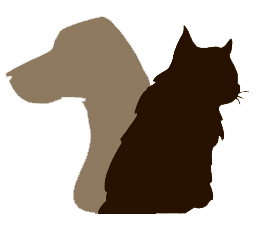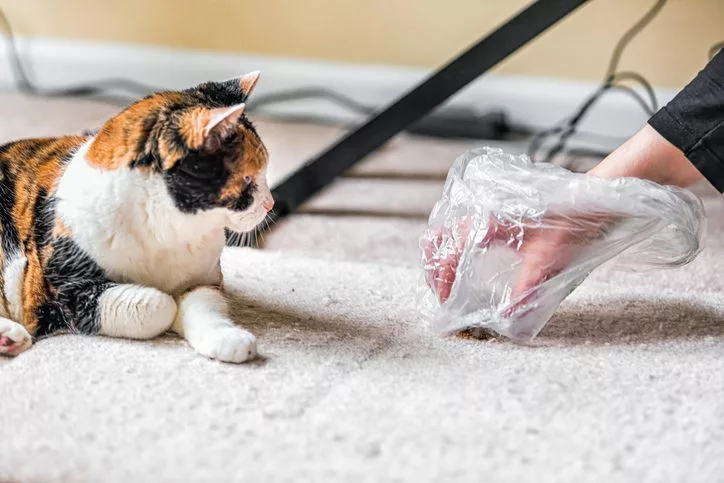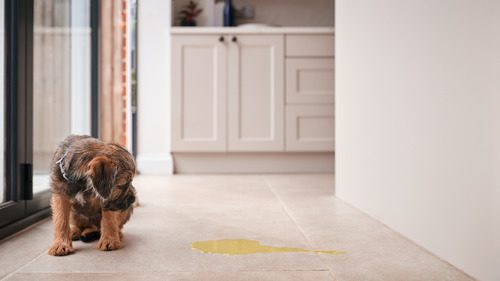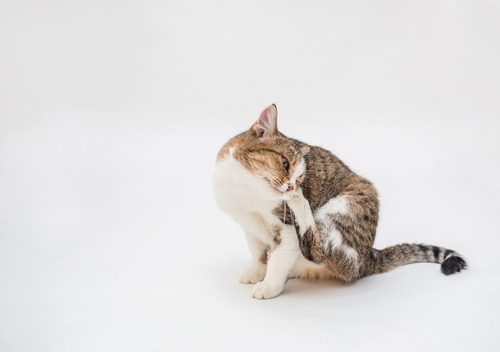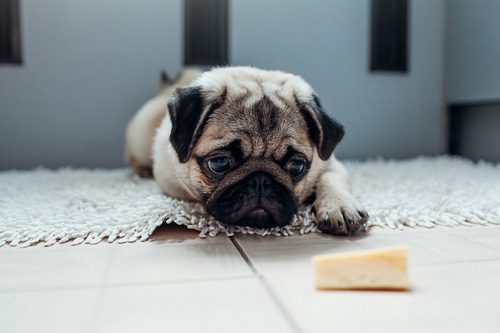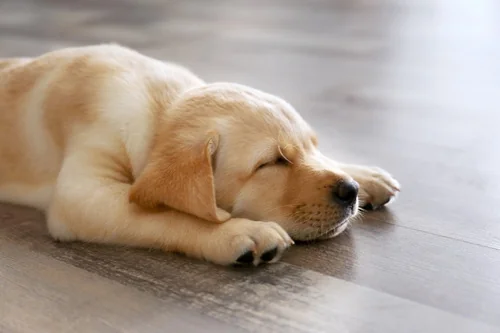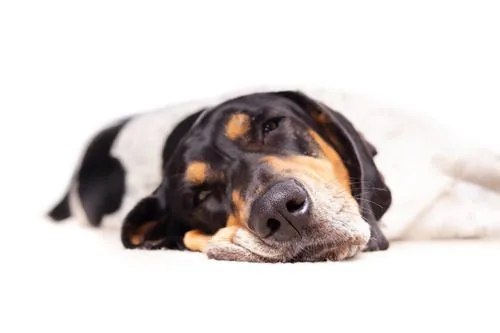Is It Normal for My Cat To Have Hairballs in Ukiah, CA?
Have you ever wondered why your cat has hairballs? Do you sometimes wonder if there is anything you can do? The good news is that there is plenty that you can do to help prevent hairballs. Before we get into that though, let’s start at the beginning with “What is a Hairball?”
What is a Hairball?
A hairball is a ball or collection of hair that forms inside a pet. The clump of hair gets rejected by the body and can be vomited up. They are more common in cats because cats groom themselves using their tongues.
Cause of Hairballs
Hairballs are natural in cats. They are caused by the buildup of hair in a cat’s stomach or esophagus. The hair has to get out somehow. Depending on your cat they may expel the hair through the normal digestive tract.
Cats with more fur, such as long-haired breeds, are more likely to get hairballs. The longer fur is harder to expel properly. Instead, it builds up and the cat vomits it up.
Warm weather can also affect your cat and their hairballs. In the warm weather cats will shed more fur. As they groom, they “eat” the fur and it collects.
Are Hairballs A Health Problem?
Most hairballs are not a health problem for cats. They are natural. There are some things you can do to help, which we will talk about below.
However, if you see or hear your cat vomiting but no hairball comes out, call your veterinarian. They may have some other type of problem making them vomit. They may also have the hairball stuck. A stuck hairball can cause breathing problems and worse if not fixed.
Other symptoms you should look out for are:
- An excessive amount of fur in your cat’s stool in the litterbox
- Constipation
- Loss of appetite
- Lethargy
If you notice any of these symptoms, call your vet. They are all signs of larger issues that may or may not be related to hairballs. In addition, if the number of hairballs, the frequency of hairballs, the size of hairballs, or the frequency of grooming increases significantly, you may be dealing with a skin or health condition.
Treating Hairballs
Unfortunately, there isn’t anything you can do in the moment that your cat vomits up a hairball. However, there are several things you can do to prevent hairballs.
If your cat’s hairballs have changed in any way, then your vet may want to run some tests to look for an underlying condition. Most of these conditions can be treated, so discovering them is important.
Preventing Hairballs
There are three categories to explore when it comes to preventing hairballs. Doing one or more of these things can help your cat.
Grooming
Grooming is the key to preventing hairballs. Even a short haired cat will enjoy a good grooming session. There are several fun products available to help. Some of the most popular include cat brushes and the cat glove. If you have a long-haired cat, you may want a professional to groom your cat every couple of months. In between grooming appointments, brush your cat’s fur daily. Collect all the fur and throw it away.
For cats with medium length fur, home grooming should be enough. Once again you will want to use a brush daily or every other day. For short haired cats, you can use a brush or the cat glove. The cat glove is fun because it collects your cat’s fur while you are petting your cat. You will need to remove the fur every couple of strokes.
Diet
If your cat is still producing hairballs, even with daily brushing, consider trying a special formula cat food. There are cat foods formulated to help with hairballs. Food affects hairballs in more than one way.
First, be aware that a food allergy may be causing your cat to groom themselves more than necessary. This happens if the food allergy causes the cat’s skin to feel itchy or dry. In addition, a food allergy may cause a cat to shed more fur than normal.
Second, food formulated to prevent hairballs has extra fiber that can help your cat’s digestive system process and expel hair in the litterbox. In order to see if a food is working, feed your cat exclusively that food for 8 weeks. If you notice a positive difference, keep using the food. If you notice no difference, try another food. If you notice a negative difference, such as things getting worse, talk to your vet.
You may also be able to find cat treats that help with hairballs. Also, available are edible gels that can help. However, a better cat food diet is the first step, and these others are just supplements you can use.
Shampoos
Last, but certainly not least, we have cat shampoos. This step is more important for long haired cats than any other. Your cat may be reacting to an ingredient in a cat shampoo, causing excessive shedding. If this is happening switch shampoos.
There are hairball prevention shampoos that you can use if you find one you and your kitty like. Talk to your vet about what shampoo they would recommend. You can also mention shampoo to your groomer and see if they have a recommendation.
Yes, Hairballs are Normal for Cats
Now that you have the facts, you can make life more comfortable for your cats. Hairballs are normal but not fun, for you or your cat. Don’t forget to always talk to your vet before and after you make any changes so that they can help you monitor the affects.
Call your Mendocino Animal Hospital veterinarian at (707) 462–8833 or book an appointment online if you have any questions or concerns about your cat’s hairballs!
Recent Posts
Dog UTI Symptoms
Urinary tract infections (UTIs) can affect dogs of any age, breed, or size—and when they do, it…
Ear Mites in Cats
If your cat has been shaking their head, scratching around their ears, or showing signs of discomfort,…
Can Dogs Have Cheese?
Many pet owners enjoy sharing small bites of their favorite snacks with their dogs—especially something as tempting…
What Do Dogs Dream About?
Have you ever watched your dog sleeping—legs twitching, nose wriggling, tail flicking—and wondered what’s going on in…
Is it Normal That My Dog is Snoring?
Dogs snoring can be adorable, but it can also raise concerns for pet owners. If you’re wondering,…
About Mendocino Animal Hospital
At Mendocino Animal Hospital, we believe in fostering the human-animal bond with excellent veterinary medicine. Our full-service veterinary practice operates in Ukiah, CA with a team of skilled veterinarians and a passionate, talented support staff who make you feel like a part of the family.
As an AAHA-accredited animal hospital, every service and aspect of our practice meets AAHA’s Standards of Excellence. No matter what your pet comes in for, they’ll receive only the best in care, compassion, and service.
